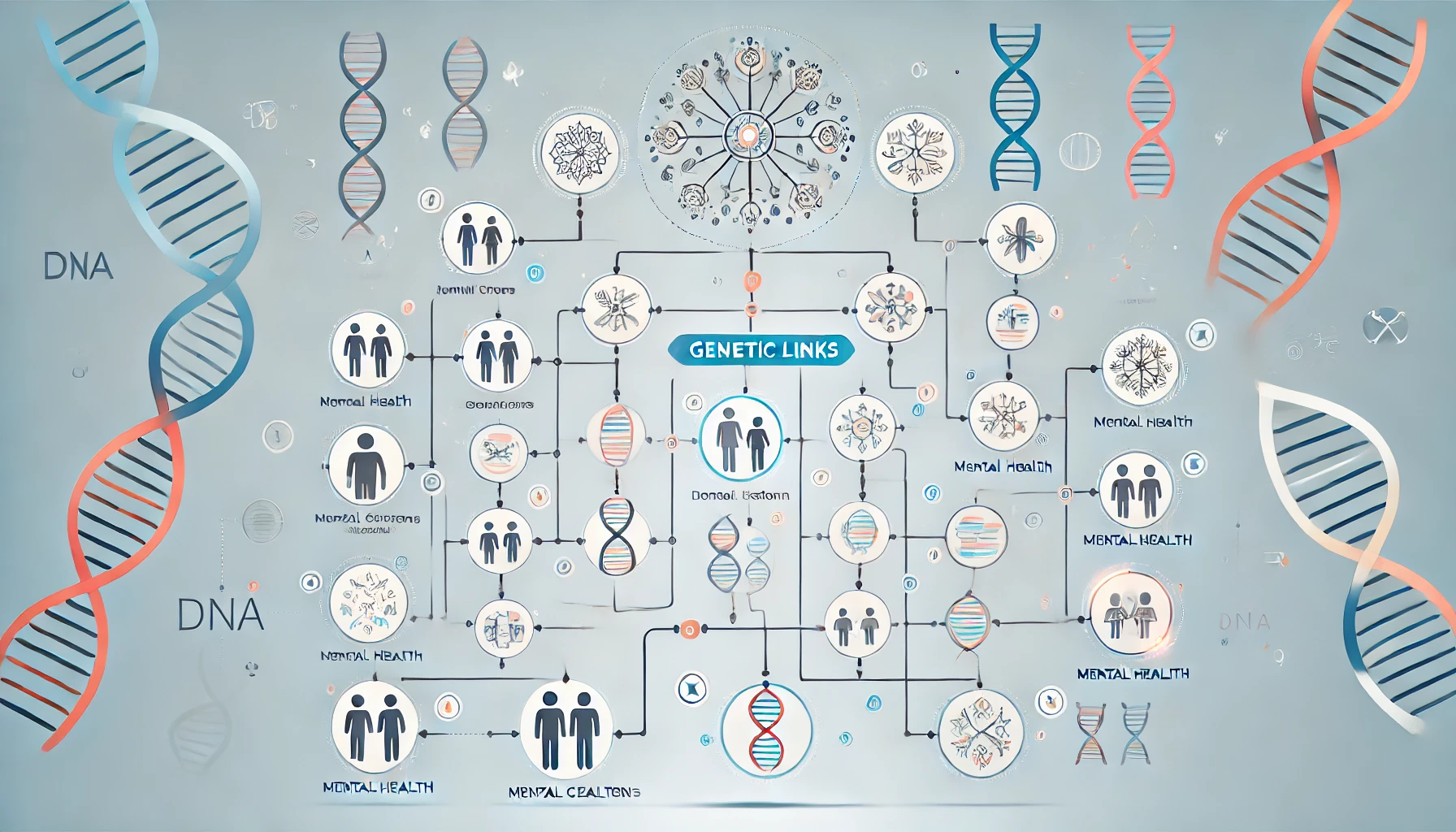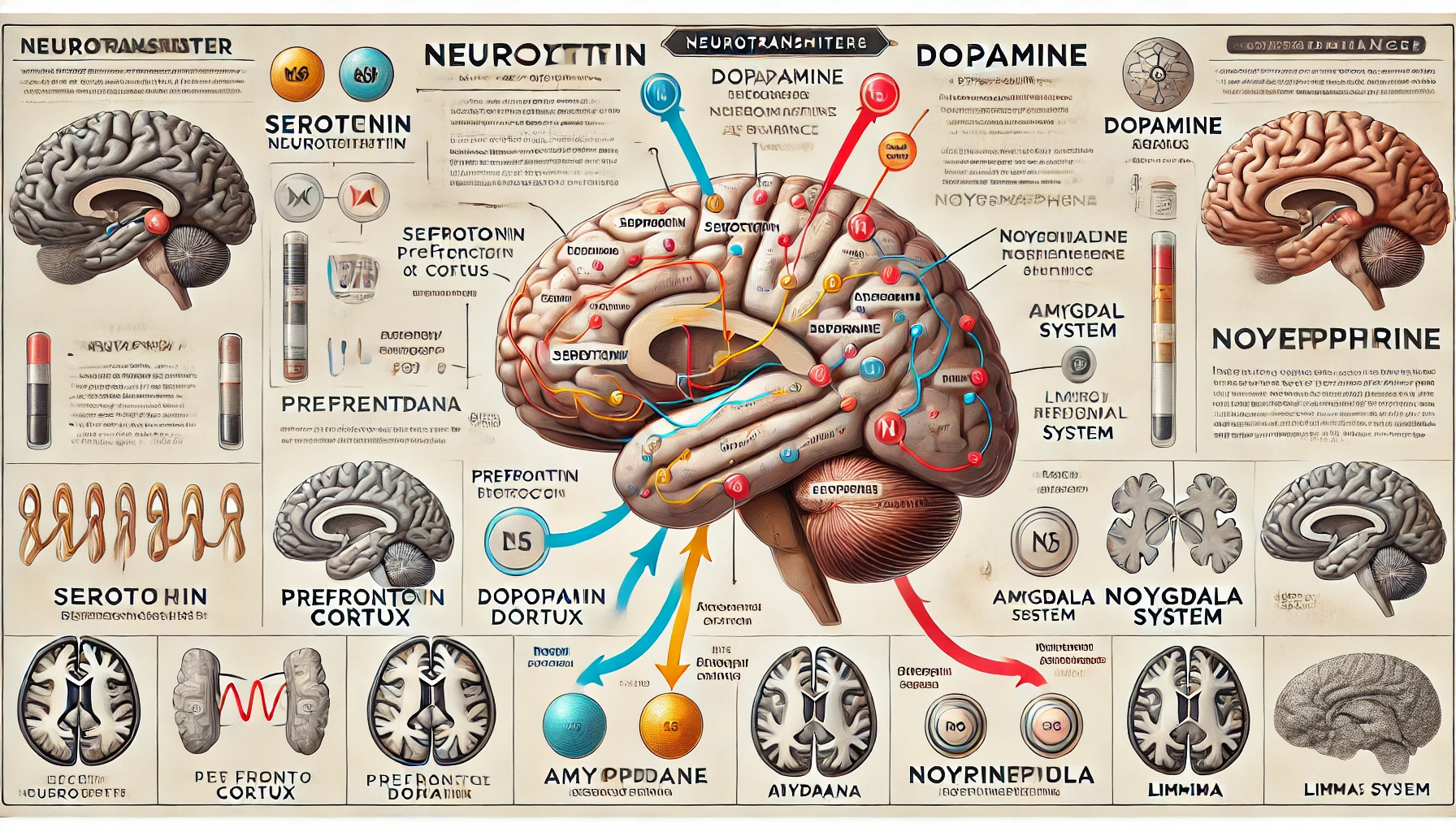Bipolar Disorder: Managing and Understanding
Dr. Jane Thompson
20 Oct 2024 • 12 min read
Introduction to Bipolar Disorder
Bipolar disorder, also known as manic-depressive illness, is a mental health condition characterized by extreme mood swings that include emotional highs (mania or hypomania) and lows (depression). These mood shifts can affect a person’s energy levels, behavior, and ability to carry out daily tasks. Bipolar disorder is a lifelong condition, but with proper treatment, individuals can manage their symptoms and lead fulfilling lives.

Understanding Bipolar Disorder
Bipolar disorder is a complex condition that involves more than just mood swings. The severity and duration of these mood episodes vary and can be triggered by various factors, including stress, sleep disturbances, and medication changes. Understanding the types, symptoms, and causes of bipolar disorder is essential for managing the condition effectively.
Types of Bipolar Disorder
- Bipolar I Disorder: This type is characterized by manic episodes lasting at least seven days or by manic symptoms severe enough to require immediate hospitalization. Depressive episodes typically last at least two weeks, and mixed episodes (having both manic and depressive symptoms simultaneously) can also occur.
- Bipolar II Disorder: This type involves a pattern of depressive episodes and hypomanic episodes, which are less severe than full manic episodes. Individuals with Bipolar II may experience longer periods of depression.
- Cyclothymic Disorder (Cyclothymia): This type involves chronic fluctuating moods, with numerous periods of hypomanic symptoms and depressive symptoms that do not meet the criteria for a full hypomanic or depressive episode. These symptoms last for at least two years in adults or one year in children and adolescents.
- Other Specified and Unspecified Bipolar and Related Disorders: These types involve bipolar disorder symptoms that do not match the criteria for Bipolar I, Bipolar II, or Cyclothymia but still cause significant distress or impairment.

Symptoms of Bipolar Disorder
Bipolar disorder symptoms can vary widely, depending on the type of mood episode a person is experiencing. These symptoms are divided into those associated with mania, hypomania, and depression.
Manic Symptoms
- Euphoria: An overly happy or elated mood.
- Increased Energy: Excessive energy, activity, or restlessness.
- Decreased Need for Sleep: Feeling rested after only a few hours of sleep.
- Racing Thoughts: Rapid and often disorganized thinking, jumping from one idea to another.
- Impulsivity: Engaging in risky behaviors, such as spending sprees, unprotected sex, or reckless driving.
- Grandiosity: Inflated self-esteem or unrealistic beliefs in one’s abilities.

Hypomanic Symptoms
Hypomania is similar to mania but less severe. The symptoms are not intense enough to cause significant problems in social or occupational functioning.
- Elevated Mood: Feeling unusually cheerful or energetic.
- Increased Productivity: Greater focus and efficiency.
- Sociability: More outgoing and talkative.
- Mild Impulsivity: Engaging in slightly more risky behaviors than usual but not to the extent seen in mania.

Depressive Symptoms
- Prolonged Sadness: Persistent feelings of sadness or emptiness.
- Fatigue: Low energy or feeling constantly tired.
- Sleep Disturbances: Difficulty sleeping or oversleeping.
- Appetite Changes: Weight loss or gain due to changes in eating habits.
- Loss of Interest: Reduced interest or pleasure in activities once enjoyed.
- Difficulty Concentrating: Problems with focus and memory.
- Feelings of Worthlessness or Guilt: Overwhelming feelings of guilt or worthlessness.
- Suicidal Thoughts: Thoughts of death or suicide, or actual suicide attempts

Causes and Risk Factors
Bipolar disorder is believed to result from a combination of genetic, biological, environmental, and psychological factors. Understanding these factors can help in managing the condition and reducing the risk of severe episodes.
Genetic Factors
Bipolar disorder tends to run in families, suggesting a genetic component. If a parent or sibling has bipolar disorder, the likelihood of developing the condition is higher.

Biological Factors
- Brain Chemistry: Imbalances in neurotransmitters such as serotonin, dopamine, and norepinephrine are associated with mood regulation and are believed to play a role in bipolar disorder.
- Structural Differences: Some studies suggest that people with bipolar disorder may have differences in the structure and function of certain areas of the brain.

Environmental Factors
External factors such as stress, trauma, or substance abuse can trigger or exacerbate bipolar episodes.
- Stressful Life Events: Traumatic experiences, significant life changes, or chronic stress can trigger or worsen mood episodes in people with bipolar disorder.
- Substance Abuse: Alcohol or drug abuse can exacerbate bipolar symptoms and make treatment more challenging.

Psychological Factors
- Personality Traits: Certain personality traits, such as high sensitivity to stress or difficulty managing emotions, may increase the risk of developing bipolar disorder.
- Co-occurring Conditions: Conditions such as anxiety disorders, ADHD, or substance use disorders often coexist with bipolar disorder and can complicate its management.

Treatment for Bipolar Disorder
Bipolar disorder is a lifelong condition that requires ongoing treatment. The goal of treatment is to manage symptoms, reduce the frequency and severity of mood episodes, and improve the individual’s quality of life.
Medication
Medications are the cornerstone of treatment for bipolar disorder. They help stabilize mood swings and manage symptoms.
- Mood Stabilizers: Medications such as lithium, valproate, and lamotrigine are commonly prescribed to stabilize mood and prevent both manic and depressive episodes.
- Antipsychotics: Atypical antipsychotic medications like olanzapine, quetiapine, and aripiprazole may be used to manage mania or mixed episodes.
- Antidepressants: These may be prescribed for depressive episodes, often in combination with a mood stabilizer to prevent triggering a manic episode.
- Antidepressant-Antipsychotic Combination: The combination of fluoxetine (an antidepressant) and olanzapine (an antipsychotic) is FDA-approved for the treatment of bipolar depression.

Psychotherapy
Psychotherapy, or talk therapy, is an essential component of treatment for bipolar disorder. It helps individuals understand their condition, manage symptoms, and cope with challenges.
- Cognitive-Behavioral Therapy (CBT): CBT helps individuals identify and change negative thought patterns and behaviors associated with mood episodes.
- Interpersonal and Social Rhythm Therapy (IPSRT): This therapy focuses on improving interpersonal relationships and establishing regular daily routines, which can help stabilize mood.
- Family-Focused Therapy: Involving family members in therapy can improve communication, reduce stress within the family, and provide support for managing the disorder.

Lifestyle Management
Lifestyle changes can play a significant role in managing bipolar disorder and reducing the risk of mood episodes.
- Regular Sleep Patterns: Maintaining a consistent sleep schedule can help regulate mood and prevent episodes. Avoiding sleep deprivation is crucial.
- Healthy Diet: A balanced diet that includes essential nutrients can support overall brain health. Avoiding excessive caffeine, sugar, and alcohol is recommended.
- Exercise: Regular physical activity can help improve mood, reduce stress, and promote overall well-being.
- Stress Management: Techniques such as mindfulness, meditation, and yoga can help manage stress, which is a common trigger for mood episodes.

When to Seek Help
It’s important to seek help if you or someone you know is experiencing symptoms of bipolar disorder, especially if they are severe or interfere with daily life. Early diagnosis and treatment can make a significant difference in managing the condition.
- Symptoms Persist: If mood swings or depressive episodes last for more than a few weeks and do not improve, it’s time to seek professional help.
- Daily Functioning Is Impaired: If bipolar symptoms are affecting your ability to work, maintain relationships, or carry out daily activities, professional treatment is necessary.
- Risk of Harm: If you or someone you know is experiencing thoughts of self-harm or suicide, seek immediate help from a mental health professional or contact emergency services.

Common Myths About Bipolar Disorder
Myth 1
Bipolar disorder is just mood swings.
- Fact: Bipolar disorder involves extreme mood episodes that are much more severe than typical mood swings and can significantly impair daily functioning.
Myth 2
People with bipolar disorder cannot lead normal lives.
- Fact: With proper treatment and support, many people with bipolar disorder can lead fulfilling, productive lives.
Myth 3
Bipolar disorder only affects adults.
- Fact: Bipolar disorder can affect people of all ages, including children and adolescents.
Myth 4
Medication is the only treatment.
- Fact: While medication is a critical component of treatment, therapy, lifestyle changes, and support are also essential for managing the condition.
Myth 5
People with bipolar disorder are always manic or depressed.
- Fact: Many people with bipolar disorder experience periods of stability between mood episodes, during which they feel and function normally.

Advances in Bipolar Disorder Treatment
Advancements in the treatment of bipolar disorder have made it possible to tailor treatment plans to individual needs and improve outcomes:
- Personalized Medicine: Genetic testing can help determine which medications may be most effective for an individual, reducing the trial-and-error process of finding the right treatment.
- Neuromodulation Therapies: Treatments like transcranial magnetic stimulation (TMS) and electroconvulsive therapy (ECT) are being used to treat severe mood episodes that do not respond to medication.
- Digital Health Tools: Apps and online platforms offer mood tracking, medication reminders, and access to therapy, making it easier for individuals to manage their condition.

Conclusion
Bipolar disorder is a complex but manageable condition. By understanding the symptoms, causes, and treatment options, individuals with bipolar disorder can take proactive steps to manage their condition and improve their quality of life. With the right combination of medication, therapy, lifestyle changes, and support, many people with bipolar disorder can lead healthy, fulfilling lives. If you or someone you know is struggling with bipolar disorder, reach out to a healthcare provider to explore the available treatment options and start the journey toward stability and well-being.

Dr. Jane Thompson
20 Oct 2024 • 12 min read